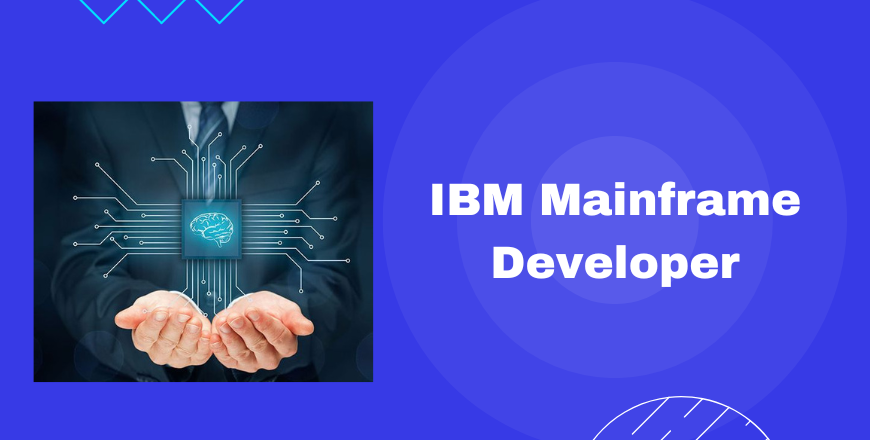IntuTech IBM Mainframe Developer course in pune is aimed at anybody interested in COBOL or or software development. IBM Mainframe developer course in pune , you will be introduced to core practices, systems, and methodologies associated with IBM COBOL software development. You will learn about COBOL as a self-documenting language. You will review working with existing coding.
Mainframe is extensively used in large MNC which deal with huge amount of data every day. Over 80% of the global Fortune 500 companies use Mainframe to run their business for everything from cloud to mobile to big data and analytics. Now, there are 1.1 million customer transactions per second on Mainframes compared with just 40,000 searches on Google per second. IBM is the leading manufacturer of the Mainframe Systems.
IBM mainframes are large computer systems produced by IBM since 1952
Current mainframe computers in IBM’s line of business computers are developments of the basic design of the IBM System/360.
- You will learn to code COBOL programs
- You will learn to code COBOL – CICS programs
- You will master TSO and ISPF Commands on Mainframe computer that will help you in your day to day work and projects
- You will learn how to code JOB CONTROL LANGUAGE programs
- You will learn all the major ISPF commands and understand ISPF operations
- Advanced TSO/ISPF commands are covered as well
- You will learn all major VSAM topics such as creation of KSDS, RRDS, ESDS, LDS, Alternate index, REPRO etc
- You will learn how to create datasets on a Mainframe and perform operations on them
- You will be able to Install your own Mainframe Operating system emulator on your Personal Computer
- You will also learn how to connect to a Mainframe
- Learn about IBM Master the Mainframe Contest
- You will learn what a Mainframe is
- Mainframe Manufacturers in the world today
- The History of IBM Mainframes
- Operating Systems used on Mainframe computers
- Identify the various Mainframe Technologies.
- Programming Languages used on Mainframes today
- Different types of Processing done on a Mainframe
- Learn about Industries where Mainframes are used
- This will build a base to learn further about Application programming on Mainframes
IBM Mainframe Developer Course Duties
Installing and configuring system software. Designing and coding new applications to run on the mainframe. Introduction and management of new workloads on the system, such as batch jobs and online transaction processing. Operation and maintenance of the mainframe software and hardware.
IBM Mainframe developer course job brief
A IBM mainframe developer creates and maintains applications for computers with mainframe systems. This can involve writing code, testing code for bugs and working with other developers to ensure all components of a mainframe function properly.
IBM Mainframe Developer course Responsibilities
Work with IT support teams (EIA, DA/DBA, server teams) to ensure support and project requirements are developed and successfully implemented. Develop and execute unit test and integration plans/scripts to validate that application changes meet technical specifications.
IBM Mainframe Developer Course Skills
- Attention to detail. Attention to detail is the ability to identify and note all relevant information on a task.
- Business processes.
- Capacity management.
- Communication.
- Data analysis.
- Data integration.
- DB2.
- Digital security.




